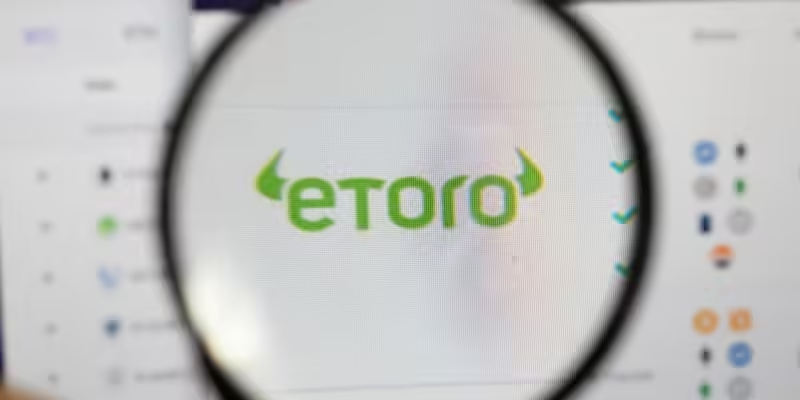
Key Points
- eToro pays $1.5M in SEC settlement.
- Only Bitcoin, Bitcoin Cash, and Ether remain tradable.
- Ether is increasingly viewed as a commodity.
- What does Ether’s commodity status mean for crypto?
The recent settlement between eToro and the U.S. Securities and Exchange Commission (SEC) has reignited discussions around the classification of cryptocurrencies, particularly Ether as a commodity.
As part of the $1.5 million settlement, eToro agreed to halt trading for most digital assets on its platform, except for Bitcoin (BTC), Bitcoin Cash (BCH), and Ether (ETH).
This decision by the SEC highlights the growing consensus that Ether should be regulated as a commodity rather than a security. But what does this mean for the crypto market and Ethereum’s future?
I genuinely can’t get over how insane this is.
The SEC used the term “crypto asset securities” eight times in the eToro settlement order they issued on THE SAME DAY they told a federal court that they wouldn’t use it to avoid confusion.
The SEC has officially jumped the shark. pic.twitter.com/mdKqVIDpQ6
— Jake Chervinsky (@jchervinsky) September 13, 2024
Why Is Ether Considered a Commodity?
The classification of Ether as a commodity is not entirely new. Both the SEC and the Commodities Futures Trading Commission (CFTC) have suggested that Ether, much like Bitcoin, functions more as a commodity.
A commodity is generally defined as a basic good used in commerce, interchangeable with others of the same type, like gold or oil.
However, Ether is much more than a simple currency. Ether powers the Ethereum blockchain, which is the backbone for decentralized applications (dApps) and smart contracts.
This unique function makes it difficult to define Ether solely as a currency or a security, as it plays a pivotal role in a decentralized ecosystem.
Ether Commodity Status and Tax Implications
Under U.S. tax law, cryptocurrencies like Ether are classified as property, much like real estate or collectibles. This classification is critical because it determines how crypto transactions are taxed.
The IRS views Ether and other digital assets as taxable property, meaning that gains or losses from trading these assets are subject to capital gains taxes.
Many crypto exchanges, including Coinbase, have argued that Ether as a commodity aligns more with its true nature as a digital asset with intrinsic value beyond being a currency.
By treating Ether as property and a commodity, regulators can simplify how it is taxed and regulated.
What Makes Ether Different from Securities?
The SEC’s settlement with eToro underscores the ongoing debate about what makes certain cryptocurrencies, like Ether, commodities instead of securities.
The Howey Test, a legal framework used by the SEC to determine whether an asset is a security, considers whether an investment involves money, a common enterprise, and an expectation of profits from the efforts of others.
Ether, however, doesn’t fit neatly into this framework. Unlike securities, which are typically tied to investment contracts and external management, Ether is a decentralized tool.
It enables smart contracts and peer-to-peer transactions without the need for intermediaries. This functional distinction is why Ether as a commodity makes more sense within the current regulatory landscape.
Ether as Digital Capital: More Than Just a Commodity
While Ether as a commodity has become the prevailing view among regulators, it’s important to note that Ether also functions as a form of digital capital.
The Ethereum blockchain allows users to create decentralized applications, build financial products, and execute smart contracts—all without relying on centralized authorities.
This makes Ethereum an essential part of the decentralized finance (DeFi) revolution, where users can engage in borrowing, lending, and trading outside traditional financial systems.
Ether’s commodity status doesn’t fully capture the complexity of its role in this ecosystem. It is more than just an asset for trading—it’s a tool that can be programmed to automate business processes, create secure transactions, and enable new innovations in finance, healthcare, and more.
By acknowledging Ether as a commodity, regulators allow for its broader use case as a decentralized, programmable asset.
What Does Ether’s Commodity Status Mean for the Future?
The SEC’s decision to allow the continued trading of Ether on platforms like eToro signifies that Ether as a commodity may become the standard classification moving forward.
will likely reduce regulatory hurdles for Ethereum-based applications and encourage more widespread adoption.
As the regulatory framework around crypto becomes clearer, Ether’s status as a commodity will solidify its role as a cornerstone of decentralized technologies.
However, this classification is just the beginning. As blockchain technology continues to evolve, so too will the regulatory landscape.
For now, though, Ether as a commodity provides a solid foundation for Ethereum to grow and develop, both as a financial asset and as the fuel for decentralized applications.

















